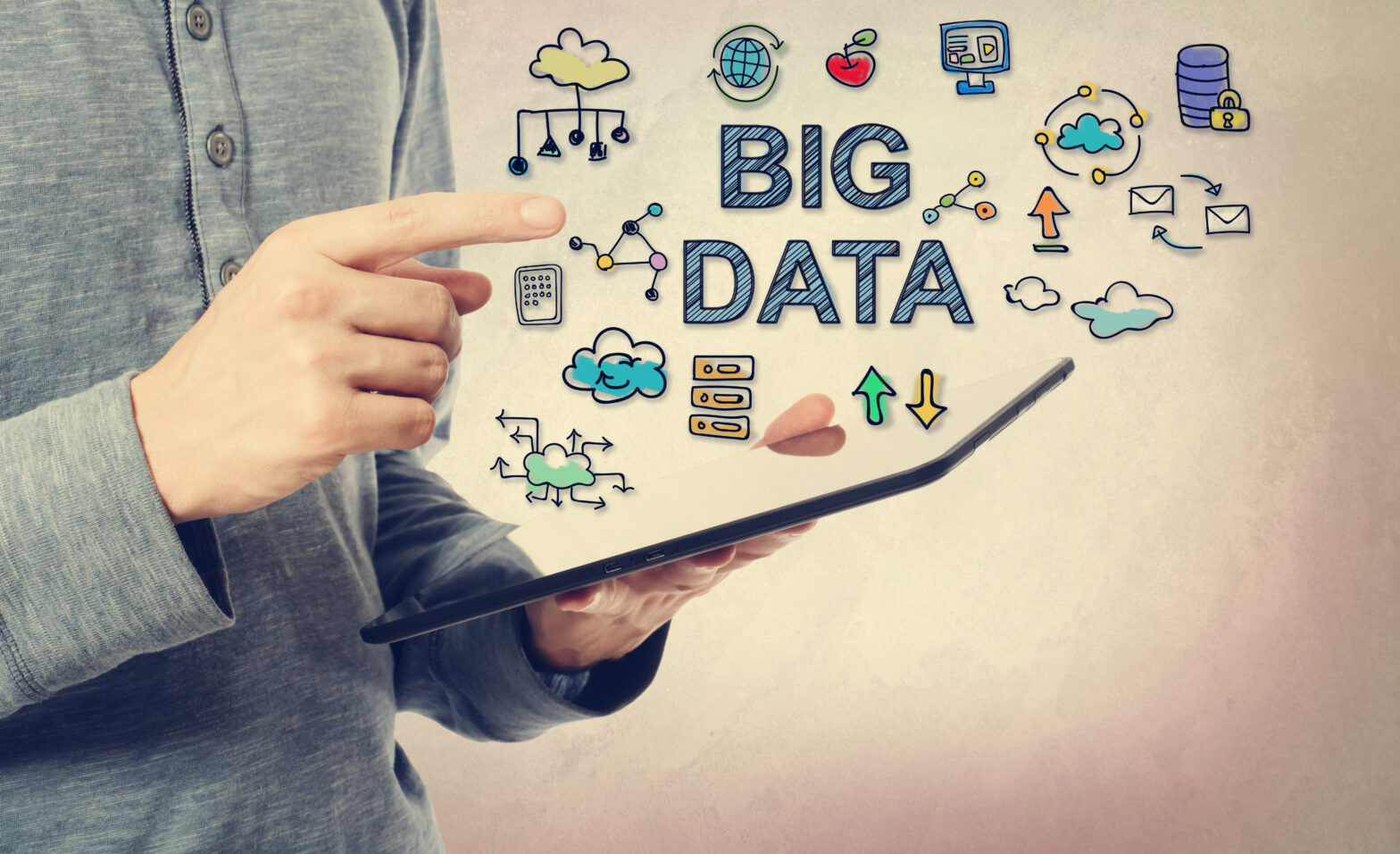The title of this feature may be ‘How big can data get?’ but in many ways it’s a question that seems impossible to answer. The depth and range of data being used today, across multiple industries and multiple platforms, provides a level of insight that would have been almost incomprehensible to us 20 years ago. Fast forward to 2040 and the potential possibilities appear endless.
There’s no question that data is going to become increasingly important and increasingly significant for businesses striving to better connect with consumers and customers. Bernard Marr, author of the book Big Data: Using smart big data analytics and metrics to make better decisions and improve performance told ZD Net earlier this year that: ‘The advantages are so limitless because we now have data on everything and it can help us get new insights on everything.’
That last part of Marr’s quote is really the key. Data is everywhere. There is masses of the stuff, more than we could ever really need and certainly more than we can use – the big data and analytics market is expected to be worth more than $187 billion in 2019; it was $122 billion in 2015. The critical aspect is what we can learn from data and how to use it intelligently. What do we need data for? What can it tell us?
Once a business understands what data it needs and how then to use it, it has taken a major step forward and will be in prime position to more closely understand its audience. And that potential audience is vast – even if the bold prediction by Cisco, made several years ago, that there could be 50 billion devices connected to the internet by 2020 now seems inaccurate (it’s believed that the figure could be around half of that). That’s still a large volume of devices seen by a large volume of people!
If you’re a regular online shopper, you’ll no doubt already be aware of the way data allows a retailer to interact with us and understand our habits in fine detail. For example, buy a book by a particular author online and then books by the same writer, or in the same series, are recommended. Spotify’s Discover function is a good example of this. Listen to a particular artist or album and check your Discover tab; because you’ve saved a Radiohead album, Spotify will suggest other artists suitable for your taste – Portishead perhaps, or PJ Harvey. Browse products online – digital window shopping – for flights, football boots, a new car, gig tickets, pretty much anything, and you may have noticed these items following you around ‘the net’ days later. Not-so subtle reminders that you showed an interest in an item but didn’t move to the purchase stage.
Location data – tracking your movements step by step
Clever stuff, if not exactly new – brands and retailers have long stopped guessing at what consumers might be interested in. Now they know, because they’ve seen what you’ve been looking at. The next development in this is not just what but when and where.
Campaign hailed the future of data as ‘all about location’ in this article back in August. Location data tracks a user’s movements as they happen by GPS; a device can tell if you’re a couple of minutes away from a particular restaurant or coffee shop, and ping you a coupon or a tempting offer. This technology will only get more advanced in the coming years, though it’s already pretty smart right now. Wired hailed Dark Sky as ‘a terrific weather app’ that ‘sends you a notification if it’s going to rain – and tells you how long it’ll be until the first drops fall on your head’. This is personalised, highly-targeted marketing instead of one size fits all promotional campaigns.
Other forms of data capture will get increasingly more insightful and smarter. Survey providers such as Smart Survey are capitalising from extensive mobile usage by distributing mobile surveys and receiving instant feedback. Responsive surveys that react to each respondent’s answers – and even hides pages which are considered irrelevant depending on answers received – are ever more sophisticated developments which ultimately create higher-quality data.
The world’s smartest toothbrush?
But data won’t just be collected from activity on our mobile devices. At Mobile World Congress in Barcelona earlier in 2016, Oral-B unveiled its new smart toothbrush. Modestly titled Oral-B Genius, it is indeed very clever. Used in conjunction with a dedicated app it can detect the teeth being brushed and instruct the user as to how much brushing it still needed – this is based on insight that around 80 per cent of people don’t spend enough time doing this on at least once zone inside their mouth.
The potential of that data could be huge – shared with retailers, it can lead to personalised offers when toothbrushes need replacing; and with dentists to automatically create appointments and increase the frequency of them. Retrieving data from a toothbrush might seem a step too far but it won’t be the last innovation launched in the near future.
As data gets bigger, its influence is being felt in multiple industries. Over the next couple of decades, it’s likely that the majority of industries and sectors will rely heavily on data in some way. In recent years, football’s use of statistical data and analysis of it to assist key areas of operation – including player and coach recruitment – has been highly publicised. And somewhat controversial, too. Once a game in which decisions were often made on individual judgement and an ‘eye’ for talent, data is being used to support those decisions – that, at the top end of the game, are worth millions and millions of pounds.
This article by the BBC looked more closely at football’s relationship between the ‘beautiful and mathematical’. ‘Big data – the world of analytics, algorithms and statistical models – are increasingly part of our lives and professional sports such as football are no different,’ it said.
Opta and Prozone are two of the most prominent companies supplying data to football clubs, which can provide insight on a number of areas – from every movement players make in a game to tracking fatigue and therefore predicting likelihood of imminent injury.
Of course, the expansive use of data isn’t exclusively positive and there are a couple of issues to consider. One is how the privacy of consumers remains protected with so much personal information potentially being shared. The other is ensuring companies have the skillset to process, understand and interpret data. The trend in careers will see more data-driven roles and professions being developed – so expect to see whole new swathes of positions with titles such as Data Analytics Engineer and Big Data Architect becoming commonplace.







